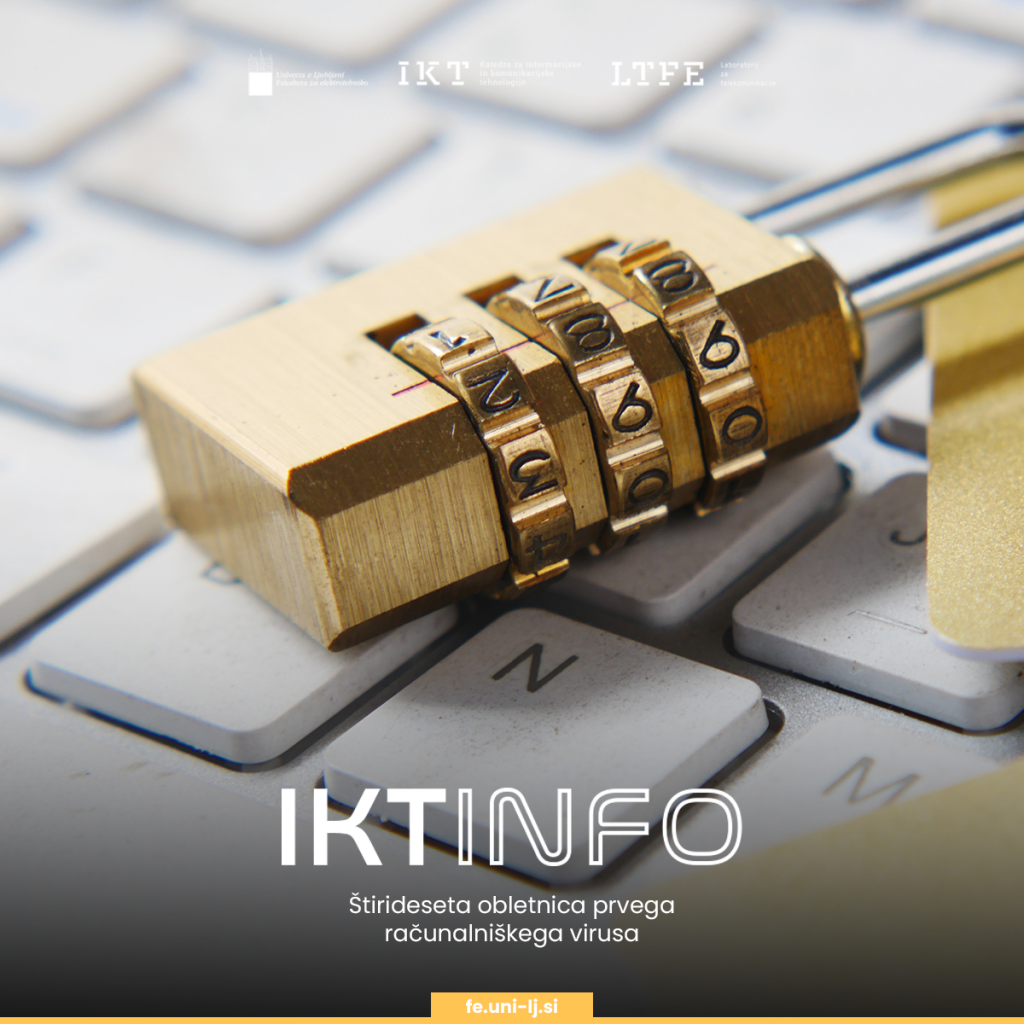[ICTinfo] 40th anniversary of the first computer virus
Date of publication: 3.1.2024
If your computer starts behaving strangely, your mouse starts doing something different, or everything stops, a computer virus is usually on the scene. In Germany, for example, 20% of internet users have been victims of a virus or other malware in the last 12 months, despite the fact that even 89% of PCs have protection software installed, according to digital industry association Bitkom. Forty years ago, on 10 November 1983, computer science student Fred Cohen presented at a seminar the first "computer virus" (as he called it in his thesis a year later), which combined a number of now common malicious functions. After unintentionally running on a computer, the programme installs and then propagates by attaching itself to other files, modifying itself to make it harder to detect. Today, we are dealing with a huge number of different types of malicious programmes used by criminals. Trojans, for example, try to steal access data to an online bank or hack into a computer, while ransomware encrypts data and demands a ransom to restore it. On the 40th anniversary of the first virus, Bitkom reminds us of three basic rules of protection: (1) At the very least, use an operating system protection program and keep it updated to protect you against new malware, (2) Don't open emails you don't know who they are from, what they are, or why they are being sent to you, and don't click on unknown attachments. (3) Make sure that your operating system and programs are updated automatically on a regular basis, not only to provide new features but also, and most importantly, to close any security loopholes that are discovered. Incidentally, even before Cohen's study project, there was malware that behaved similarly to, for example, "creeper" in 1971, but Cohen was the first to include a "mutation" of the software code that was used to digitally recreate the virus' operation.
The economy, manufacturing, education and other sectors have been subject to increased pressures and changes in recent years as a result of the pandemic and the measures taken to contain it, as well as the Russia-Ukraine war, as confirmed by various surveys and analyses. The Information and Communication Technologies (ICT) sector is also exposed to similar changes, but at the same time it is able to monitor, assess and control changes not only in its own sector but also in all other sectors, which has been a valuable help to all of them in recent years.
ICT helps businesses and institutions in all industries to organise work, adapt operations, streamline operations, process data, evaluate results, predict trends and discover new opportunities. And they enable schools and universities to implement hybrid forms of teaching and meaningful digitisation of learning processes.
This is why we have decided to publish regular summaries of information, assessments, analyses and studies by research and analyst companies that can help everyone to better monitor, learn about and understand changes and trends and to adapt more successfully to the new ICT era.
Prepared by the Department of Information and Communication Technologies in collaboration with Esad Jakupović





